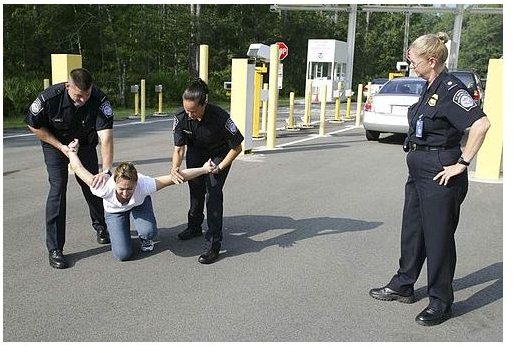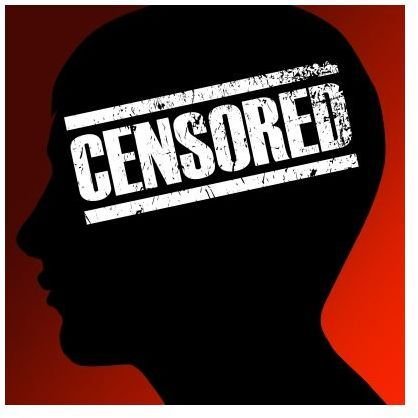Requirements To Become A Police Officer
Age and Education Requirements
The minimum age to apply to become a police officer is 18 years old and the minimum educational requirement is having a high school diploma or General Education Degree (or GED).
Age Restrictions:
Very few cities or states will hire an applicant right out of High School, but some do. Most police officer recruits enter the police academy at age 21. Potential police candidates use that time staying physically fit for the dreaded police academy boot camp and attend college. Some police departments cap the maximum age for applicants at 35, but others will hire applicants well into their 50’s. However, they must meet the same physical and educational requirements as everyone else. People applying for positions as police officers at a more advanced age typically come from a long military career background.
Education:
An Associate’s or Bachelor’s Degree in criminal justice, law enforcement, or related legal field is more likely to put a candidate ahead of others in the pile of applicants. A formal education allows police officers to advance in the ranks faster and have multiple opportunities in various positions along the chain of command, as well as the ability to switch careers within the legal system as time, age and opportunities change.
The Police Academy

The police academy provides extensive physical and weapon training as well as educational courses on state laws and civil rights. Most academies prepare police officers to be sensitive to influential cultures in the communities they will serve, and appropriate behavior and language to use when becoming an officer. Most of the required protocols are universal across police departments in the country with some extending training beyond three or four months.
Not everyone is able to complete the rigorous training demanded in the police academy and this is where fantasy and reality become separated in the minds of many. Police work involves accurate and consistent paperwork that each officer is responsible for. While many police departments have made it easier and faster for police officers to submit their paperwork electronically through hand-held devices, many are still relying on actual paper, pen and physical file folders.
Training is rigorous, but as a sign found at a police training camp explains clearly: “The more you sweat here, the less you’ll bleed on the streets.”
Testing:
- Written exams - Most provided at the police academy, others by individual police departments.
- Hearing.
- Vision.
- Drug Testing.
- Physical Fitness.
- Lie Detectors.
- Psychological Evaluations.
- Character Assessment Tests.
- Driver training - police cars and/or motorcycle - obstacle courses.
In addition to these tests, most police departments insist on a background check that includes criminal records, credit scores and verification of claims made on the application regarding education, references and previous employment.
Realities And Myths

The hiring of police officers is highly dependent on budgets and surpluses across the country. When there are new funds available, police and fire departments are usually first in line to receive funding and begin hiring. However, when state and city budgets are tight, those hired last are the first ones to be laid off.
-
Most police officers have not had to discharge their weapons in their entire careers on the force.
-
Cops with advance degrees make detective grade faster than those without. Most police departments will provide funding to officers to seek advance degrees in related educational fields.
-
Police officer’s suicide has increased slightly since 1999, but it is NOT higher than other stressful and demanding position or careers. It is a myth that police officers hold the #1 spot in suicide and it is rare to find a study that finds this occupation in the top 10.
-
The requirements to become a police officer are high in order to ensure a physically and mentally fit individual that knows when and how to discharge his weapon, and how to interact appropriately in the community they serve.
-
Police divorce is NOT the highest in the country among professions, but it is fairly common. Take into consideration that divorce rates are normally high in the United States across the board. The ebb and flow of divorce rates across the spectrum has more to do with economic circumstances and personalities than career choices in general.
-
Cops suffer from stress-related illnesses caused by chronic stress.
-
Post Traumatic Stress Disorder or PTSD is NOT more prevalent among police officers. PTSD requires personal trauma suffered psychologically and/or physically. The highest incidents of PTSD in any profession is found among military personnel returning from battle zones and extensive combat activities that create a mix of both physical and emotional trauma.
-
Being a cop requires being on-the-job even during days off. A weekend can easily be interrupted by a police emergency.
The Police Family

There is a code of ethics prevalent among police departments that requires secrecy and a code of silence which censors speech, and precludes sharing information, in order to be a protective member of the “police family”. This code of silence is ingrained in every cadet at a very young age and perpetuated throughout their departments and careers by senior officers. As nice as it is to have an entire force “having your back”, it is equally important to realize that just like any other family, it too, can and often is, a dysfunctional family.
Better mental health and fresh perspectives can be achieved by socializing outside of the police environment and seeking mental health services outside of the department’s approved mental health professionals.
In short, there is too much expected secrecy in police departments and too many expectations of loyalty and sacrifice with very little outside perspective. As the years go on, there is a mentality that becomes a mantra of “us against them”, that only serves to isolate the individual from other perspectives and the outside world.
Many police departments across the country strive to make productive changes to the police culture and offer resources outside the department.
Resources
Badge of Life: 2010 Police Suicide Statistics, https://www.policesuicideprevention.com/id48.html
Wikimedia Commons: Gerald L. Nino
Free Digital Photos: Simon Howden; Salvatore Vuono
